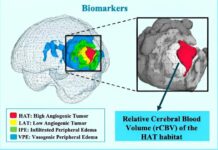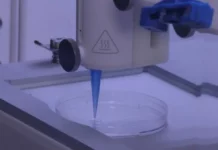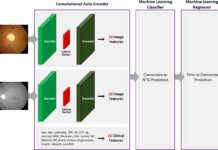Pancreatic ductal adenocarcinoma (PDAC) is one of the most prevalent carcinomas of the pancreas. An extremely aggressive type of cancer, its 5-year survival rate is very low. It also does not respond well to chemotherapy, despite significant advancements in treatment methods.
According to new research published by the Garvan Institute of Medical Research, however, it seems that the trick to treating this cancer may depend on shifting focus from the cancer cells to the cells around it.
The stroma is a network of connective tissue around a tumor that acts as metabolic support to its cells. In the case of the PDAC, this connective tissue is dense and stiff, creating a biomechanical force that paradoxically restricts the tumor’s growth while still supporting its survival by providing it nutrition.
Previous studies have shown that completely excising this stroma increases mortality among PDAC patients.
However, the Garvan Institute’s study, published in Science Advances, explains that a transient attack on stromal cells may decrease their stiffness and help make PDAC cells more susceptible to subsequent treatment, effectively “priming” them for chemotherapy.
This approach targets FAK, a molecule that the PDAC produces which helps cancer cells proliferate and also strengthens the stroma.
The investigators conducted animal trials on mouse models, treating them with FAK inhibitors. They watched the tumors progress using intravital imaging techniques.
– Lead author Kendell Murphy.
“By pre-treating the tumors with the FAK inhibitors we were changing the stiffness as well as the amount and the deposition of stromal tissue surrounding the cancer cells. On this softer surface, the cancer cells became stalled, rendering them more sensitive to chemotherapy. Effectively, we were increasing the window of vulnerability of these cancer cells to chemotherapy, reducing both pancreatic cancer growth and spread in our models.”
But how would doctors know which patients’ cancer cells will respond to this therapy?
Another PDAC protein called Merlin is the answer that question.
“Merlin is a protein that is produced at different levels in pancreatic cancer patients. We found that low levels of merlin in our experimental pancreatic cancer models resulted in our ‘priming’ combination approach targeting FAK being more effective,” explains study co-author Dr. David Herrmann.
This means that pretesting for merlin can help determine which patients will benefit from this new treatment.
Having successfully determined the efficacy of FAK inhibitors in pre-clinical trials, the researchers will collaborate with Amplia Therapeutics Limited to launch their phase II human trials in 2022.
Source: Garvan Institute of Medical Research
https://www.garvan.org.au/news-events/news/pancreatic-cancer-2018priming2019-may-make-chemotherapy-more-effective




